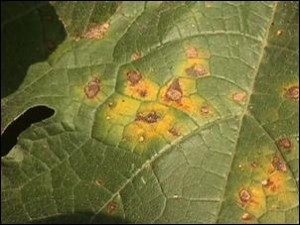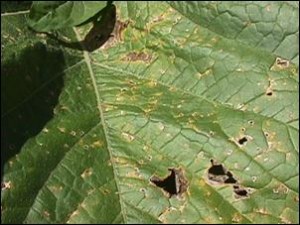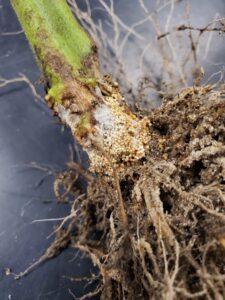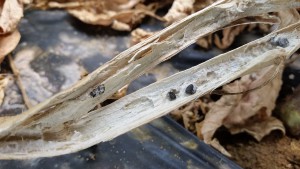Angular leaf spot, caused by the bacterium (Pseudomonas syringae pv. lachrymans), is common in New Jersey and the region. Although it often shows up during cooler, wet weather; it can show up almost anytime during the production season with favorable weather conditions for its development.

Symptoms of angular leaf spot in cucurbit.

Angular leaf spot of pumpkin. Note leaf ‘shot holes’.
Angular leaf spot will first appear in ‘hot spots’ as, small water-soaked lesions which will expand until they reach a larger leaf vein resulting in the angular looking symptoms on leaves. Under heavy disease pressure, the bacteria will infect fruit causing small, water-soaked circular spots. In many cases once weather conditions become dry again, infected tissue in leaves will die and fall out leaving the characteristic ‘shot hole’ symptoms. Control of angular leaf spot begins scouting your fields, particularly in areas that may get shaded and remain wet after heavy rainfalls. Application of labeled rates of fixed copper plus mancozeb to help suppress the spread of the disease until hot, dry weather returns.



